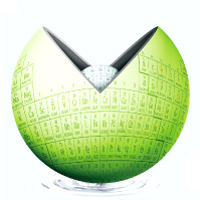
Published for geochemistry community from Geochemical Society of Japan.
Glycine oligomerization up to triglycine by shock experiments simulating comet impacts
Geochemical Journal, Vol. 48, No. 1, P. 51-62, 2014
ABSTRACT
We conducted shock experiments simulating comet impacts to assess the feasibility of peptide synthesis by such a process. We used frozen mixture of the amino acid glycine, water ice, and silicate (forsterite) as the starting material and applied impact shocks ranging from 4.8 to 26.3 GPa using a vertical propellant gun under cryogenic conditions (77 K). The results show that amino acid oligomerization up to trimers can be achieved. Further, linear peptides (dipeptide and tripeptide forms), which are important materials for the further elongation of peptide chains, were obtained in yields of one or two magnitudes greater than that of cyclic peptide form (diketopiperazine). These results contrast with those by Blank et al. (2001) for shock experiments of amino acid solutions at room temperature, which showed the synthesis of a comparable amount of diketopiperazines to that of the linear peptides. Thus, the existence of cryogenic conditions at the point of impact shock may be critical for the formation of linear peptides. Our results demonstrate that comet impacts could have supplied a significant amount of linear peptides on the early Earth and other extraterrestrial bodies.KEYWORDS
comet impacts, amino acids, peptides, shock experiments, origins of life- Published : 2014-01-20
- Released on J-STAGE : 2014/02/05
- Received : 2013/08/02
- Accepted : 2013/10/15
- DOI : https://doi.org/10.2343/geochemj.2.0285
- J-STAGE URL : https://www.jstage.jst.go.jp/article/geochemj/48/1/48_2.0285/_article/-char/ja
- J-Online ISSN: 1880-5973
- Print ISSN : 0016-7002
- ISSN-L : 0016-7002
All Issues
- Vol.59, 2025
- Vol.58, 2024
- Vol.57, 2023
- Vol.56, 2022
- Vol.55, 2021
- Vol.54, 2020
- Vol.53, 2019
- Vol.52, 2018
- Vol.51, 2017
- Vol.50, 2016
- Vol.49, 2015
- Vol.48, 2014
- Vol.47, 2013
- Vol.46, 2012
- Vol.45, 2011
- Vol.44, 2010
- Vol.43, 2009
- Vol.42, 2008
- Vol.41, 2007
- Vol.40, 2006
- Vol.39, 2005
- Vol.38, 2004
- Vol.37, 2003
- Vol.36, 2002
- Vol.35, 2001
- Vol.34, 2000
- Vol.33, 1999
- Vol.32, 1998
- Vol.31, 1997
- Vol.30, 1996
- Vol.29, 1995
- Vol.28, 1994
- Vol.27, 1993
- Vol.26, 1992
- Vol.25, 1991
- Vol.24, 1990
- Vol.23, 1989
- Vol.22, 1988
- Vol.21, 1987
- Vol.20, 1986
- Vol.19, 1985-1986
- Vol.18, 1984
- Vol.17, 1983
- Vol.16, 1982
- Vol.15, 1981
- Vol.14, 1980
- Vol.13, 1979
- Vol.12, 1978
- Vol.11, 1977
- Vol.10, 1976
- Vol.9, 1975
- Vol.8, 1974
- Vol.7, 1973
- Vol.6, 1972-1973
- Vol.5, 1971
- Vol.4, 1970-1971
- Vol.3, 1969-1970
- Vol.2, 1968
- Vol.1, 1966-1967
Current Issue:
Stats:
Impact Factor: 1.6 (2024)
Submission to final decision: 9.6 weeks (2022)




